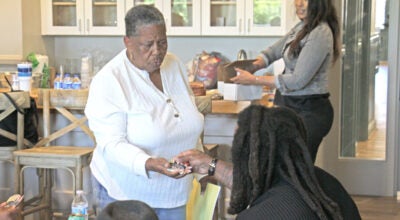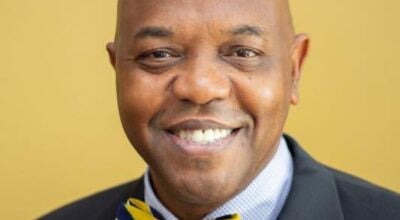Boykins inspires through stories
Published 10:09 pm Thursday, December 1, 2011
To some, zero may not mean much, but to local organizations it is a powerful number. Thursday’s World AIDS Day Luncheon and Candlelight Vigil, sponsored by the Black Belt HIV Prevention Network, the Dallas County Health Department, Lowndes County Head Start and Selma AIR, or AIDS Information and Referral, focused on the theme of “Getting to Zero” in AIDS related deaths, new infections and discrimination.
Speakers from across Alabama shared personal stories and presented facts on the importance of safe sex and abstinence, prevention and celebrating World AIDS Day every day.
According to health statistics, there are 17,000 Alabamians who are living with HIV/AIDS. HIV Education Specialist for Selma AIR Cedric Wherry said it’s important to get the information out.
“Even though we may not get to zero — we can strive for it,” Wherry said. “We want health educators and activists to help in preventing new spread (of the disease).
It takes the society — all of us, to cut out the stigma; if you’re able to bring it out, it’s not an elephant in the room. Once people learn their status, they can better learn how to protect themselves.”
The program’s keynote speaker, Cynthia Boykins of Mobile was diagnosed with AIDS in 1992. Boykins said having the disease has helped her become a better person.
“I’m a recovering drug addict with AIDS,” Boykins said, who is also a peer mentor.
“I was sexually abused by my father as a child. I felt I had to have someone in my life. I would get into relationships and say, ‘he did this to me’ or ‘he did that to me’. HIV helped me to realize nobody does what I don’t allow them to do.
“I love my life,” Boykins said, who also has a 26-year-old daughter. “I love where I am today.”
Boykin said she didn’t believe the disease could happen to her.
“When I was first diagnosed I said, ‘I ain’t taking no medication, Imma die anyway,’” Boykin said. “Ten years ago my T-cell count was six, now my count is over 700 because I take my meds; my doctors said it’s by the grace of God I’m still alive.”
The disease, Boykins said, empowers her.
“I’m a person living with AIDS,” Boykins said. “What I do saved my life. I look forward to retirement.”
Boykins advice to clients: “wrap it up.”
“In life you will make mistakes — it’s a part of growth,” Boykins said. “There are some mistakes you don’t want to make. HIV — you can’t give it back; as long as you’re positive, it’s possible for you to transmit the disease.”
The ADPH reports that as of October 2011, blacks make up 26 percent of the population but represent 64 percent of all reported HIV/AIDS cases in the state. Black males represent 45 percent and black females represent 19 percent of all reported cases in Alabama.
Elainer Jones of the Alabama Department of Education School Health Services said it’s important to reach children early when it comes to risky behaviors.
“We should start teaching … at fifth grade,” Jones said.
“My plea to you is to make sure that when your child goes to school that you ensure that school system, that school are making an effort to teach their children how to protect themselves …”
The program ended with a candlelight vigil.
<script src=”http://cdn.printfriendly.com/printfriendly.js” type=”text/javascript”></script><a href=”http://www.printfriendly.com” style=” color:#6D9F00; text-decoration:none;” class=”printfriendly” onclick=”window.print(); return false;” title=”Printer Friendly and PDF”><img style=”border:none;” src=”http://cdn.printfriendly.com/pf-button.gif” alt=”Print Friendly and PDF”/></a>




